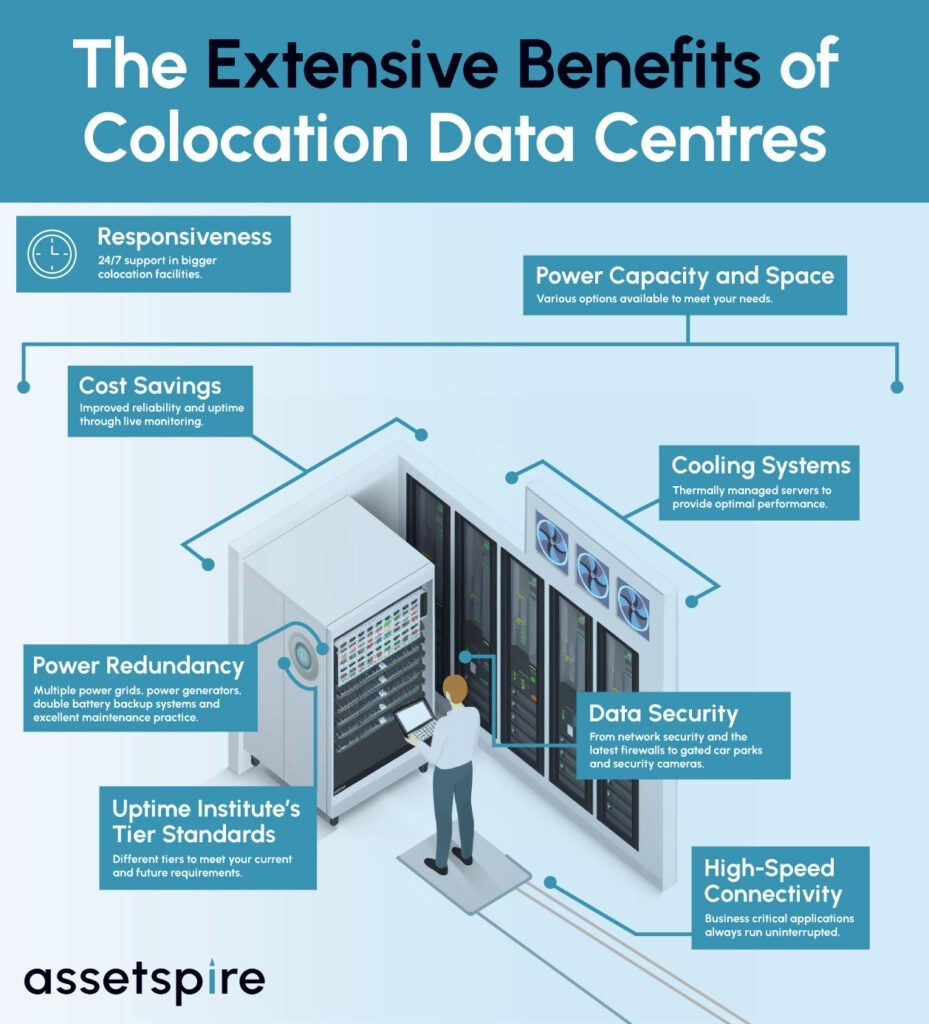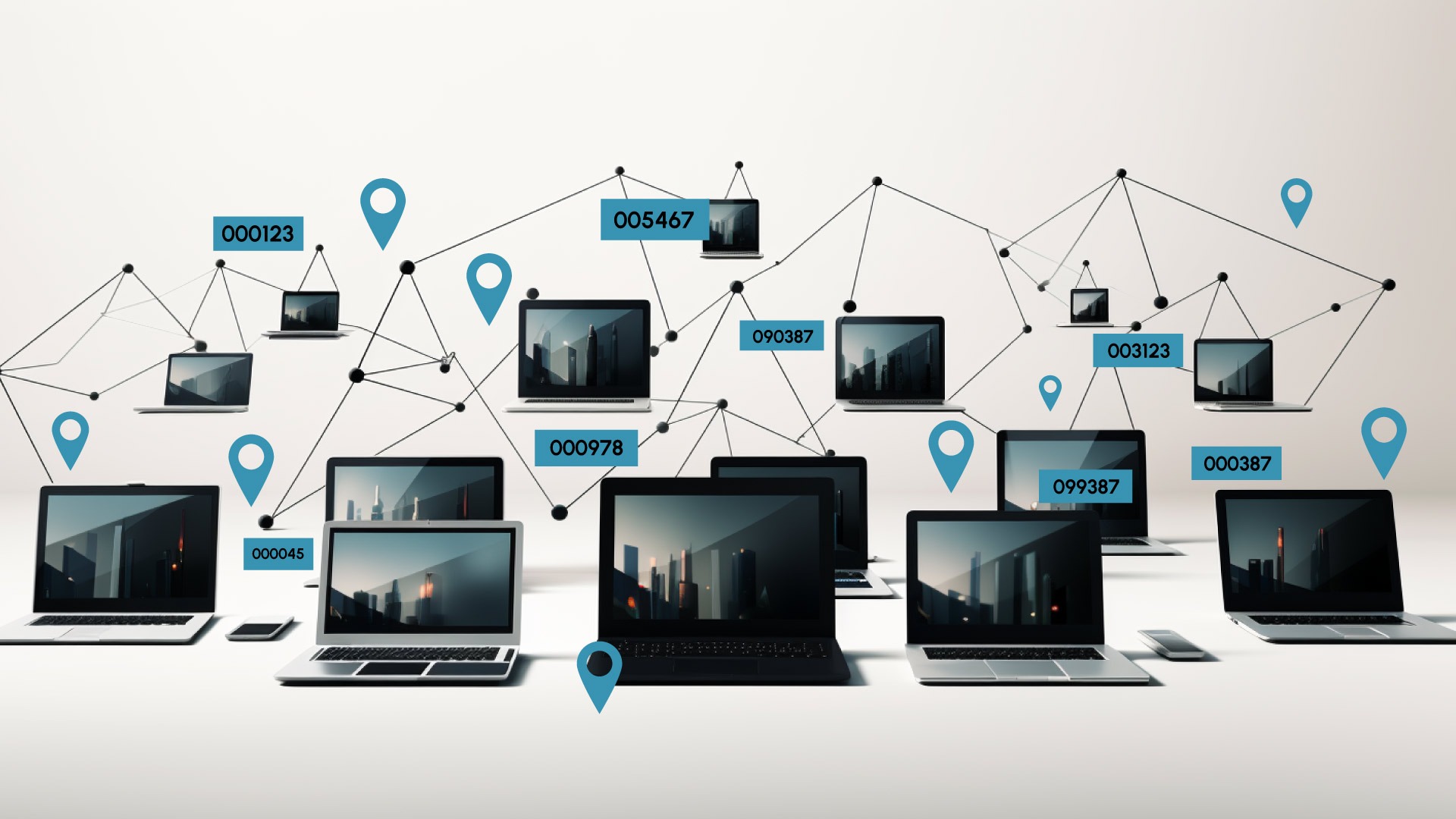Only the largest tech companies commission their own data centres. And it makes economic sense for tech giants like Microsoft to store their four million servers in their own data centres.
But it’s quite simply not a cost effective option for smaller businesses with smaller budgets, buildings and staffing. The feasible choice is to consider moving their servers and storage to a colocation data centre with a third party looking after the physical building, cooling, power, network and security.
Some colocation facilities even offer managed services but most lease the space by square meterage, cage, rack or cabinet. So, it’s no wonder colocation services are steadily increasing in popularity with their high-spec alternative to on-premise management.
Table of Contents
ToggleWhy Do More and More Enterprises Opt for Colocation Data Centres?
While we live in a digital age where computer systems and data are at the heart of most industries, storing your IT infrastructure in a space that meets your business needs, both now and in the future is absolutely paramount.
According to Gartner, Uptime Institute and 451 Research, by 2025, 80% of enterprises will close data centres in search of a better solution to support their operations. Why is this? There’s a whole host of benefits to using a colocation provider to store your data but the primary reasons include utilising third party physical space and having power, cooling and security taken care of for you.
Having the ability to access and manage your data remotely is essential when using colocation data centres, and combined with data centre infrastructure management (DCIM) you’ll get all that along with the advantage of saving money.
The Extensive Benefits of Colocation Data Centres
Combined with Assetspire’s DCIM to accurately and remotely manage your assets, data centre colocation can improve the efficiency of your operations. Live monitoring of all assets gives you the power to see everything (from capacity and power to space, cooling and connectivity) in one place, while custom dynamic dashboards and reports mean any potential issues can be acted upon before they become much bigger problems. Here is a long list of exactly what colocation data centres can offer:

Cost Savings – Improved Reliability and Uptime
Colocation data centres offer everything from server cooling systems and power to communication systems that ensure constant connection, so you don’t have to spend a significant amount of money investing in the same equipment in-house. You’ll also make potential savings on the greater protection from power outages due the numerous data backups in place in colocation facilities.
Access to State-of-the-Art Equipment and Technology
Take advantage of the opportunity to expand your infrastructure to meet the future needs of your organisation’s growth without having to take on the extra spend. When your business grows, your IT infrastructure will be ready to expand with less investment.
Power Redundancy
Through a range of multiple power grids, power generators, double battery backup systems and excellent maintenance practice, colocation facilities offer the security of power redundancy.
Cooling Systems
Many smaller, independent data centres can’t compete with the cooling and air filtration systems that colocation data centres provide. Not only does this mean servers are thermally managed to ensure that air is flowing through and an acceptable temperature is maintained throughout, but the costs and optimisation is out of your hands.
High-Speed Connectivity
Having a fully redundant network connection with high-speed connectivity ensures business critical applications always run uninterrupted.
Power Capacity and Physical Space
Colocation providers can vary greatly in size and capacity, offering your business the precise amount of square metres or racks to meet your needs. Integrate with asset management software to determine exactly how much space and capacity you require.
Physical Security Measures
Colocation data centres offer both physical and cyber security. From network security and the latest firewalls to gated car parks and security cameras, you’ll usually find that colocation offers enough to adequately protect your data and systems.
Uptime Institute’s Tier Standards
Colocation data centres are certified at different tiers by Uptime Institute, each tier supporting different functions and demands. Depending on your requirements, select the data centre tier that matches your current and future needs.
Responsiveness
At times of emergency, you will need to contact your colocation provider as soon as possible. In bigger colocation facilities, you’ll get 24/7 availability and responsiveness to be sure any issues get resolved promptly.
Choosing the Right Colocation Data Centre
Critical data needs to be kept in safe hands. With your assets’ security, connectivity and uptime at stake, finding the colocation facility that offers the space and power you need as well as the connectivity and responsiveness that meets your requirements is worth taking the time to look into.
Colocation Facility Location
Consider the distance, travel time and public transport access when picking a colocation facility as you may find yourself needing to travel to the data centre for maintenance, engineering works or even emergencies.
Service Level Agreement (SLA)
Take into account the specifications within your SLA and whether the colocation facility has enough power, space and network capacity to operate your servers within those specs. Look for a colocation data centre that provides SLAs for all key infrastructure elements such as temperature and network availability.
Flexibility and Scalability to Meet your Future Needs
Will your chosen colocation data centre keep up with your growth, even if it meets your current requirements? The average colocation contract is between three and five years, so it could save you a lot of time and money in the long run, not to mention the effort and downtime involved in having to change providers, if you choose a facility that offers the extra physical capacity and space you may need in future.
Carrier-Neutral
If your colocation data centre interconnects with other networks, you’ll get to choose from a wide range of network providers and have the freedom to connect to other suppliers with agreed SLAs, almost guaranteeing uptime.
Monitor Changes in the Colocation Data Centre
Check whether your DCIM integrates with your colocation’s own DCIM. Having the ability to track and deal with changes and issues in real-time is absolutely crucial when your assets are at a colocation facility. Many colocation data centres will provide maintenance services and can implement any changes for you, but you will still need eyes on your servers.
The Future of Colocation Facilities
The future is looking bright for the current 5011 colocation data centres worldwide. As of 2020, the global data centre colocation market was valued at nearly £46 billion, according to Grand View Research, and is expected to grow by more than 13% year on year, reaching nearly £95 billion by 2028.
The higher levels of capacity, connectivity, reliability, energy efficiency and scalability now puts colocation data centres ahead of traditional data centres.
To effectively manage the growing amount of data being stored within colocations, smart DCIM is also on the rise. A full, real-time and remote overview of your data is not simply necessary but integral to the optimisation of your servers.
Whether that’s in terms of assets, capacity or energy, this kind of innovative data centre management is particularly important as the world’s focus turns to the environment and sustainability, and whether data centres can reach net-zero by 2030.
Get a free demo of Assetspire’s next-gen DCIM to see how it can optimise your management systems.




